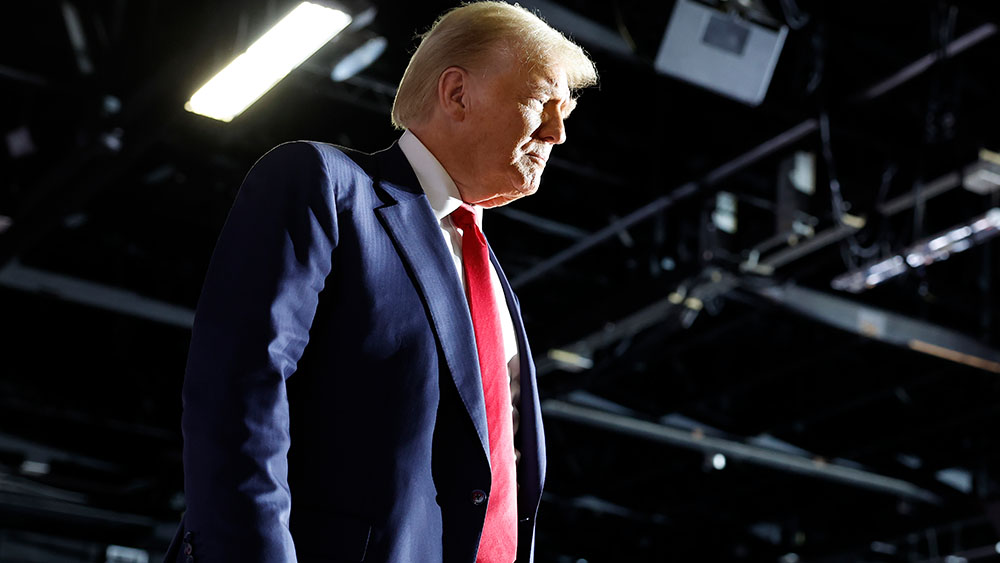 Parler
Parler Gab
Gab
- President Trump signed an executive order to cut non-essential federal functions, potentially closing entire departments to reduce spending and the national debt.
- The order, developed with Elon Musk’s DOGE, limits hiring to one new employee for every four departures, exempting roles tied to national security and public safety.
- Agencies must identify and eliminate non-essential functions, with USAID already facing significant cuts, as part of a broader effort to streamline government operations.
- Elon Musk defended his role in government reform, calling the federal bureaucracy "unconstitutional," while critics raised concerns about conflicts of interest.
- The plan faces legal challenges and union pushback, but Trump and Musk estimate it could save taxpayers $1 trillion by eliminating waste and fraud.
Agencies on the chopping block
The executive order tasks agency heads with working alongside DOGE to identify functions that are not required by law and could be eliminated entirely. This could mean the end for entire departments or the consolidation of overlapping roles. For example, the U.S. Agency for International Development (USAID) has already been gutted, with its headquarters sign removed last week. “Agencies will be able to hire no more than one employee for every four employees that depart from federal service,” states a fact sheet obtained by the New York Post. This hiring freeze, initially implemented when Trump took office on January 20, will remain in place until agencies submit their reduction plans.Musk’s role in government reform
Elon Musk, the billionaire CEO of Tesla and SpaceX, has emerged as a key player in Trump’s efforts to overhaul the federal government. Standing alongside the president in the Oval Office, Musk defended his role as an unelected official tasked with identifying waste and inefficiency. “You can’t have an autonomous federal bureaucracy. You have to have one that’s responsive to the people,” Musk told reporters. He described the bureaucracy as an “unconstitutional” fourth branch of government that often wields more power than elected officials. Critics, however, have raised concerns about Musk’s lack of transparency and potential conflicts of interest, given his companies’ lucrative government contracts. Musk dismissed these criticisms, stating, “I fully expect to be scrutinized and get, you know, a daily proctology exam, basically.”Pushback from courts and unions
The administration’s aggressive approach has faced legal challenges. A federal judge has temporarily blocked Trump’s buyout offers, which aimed to incentivize federal employees to resign voluntarily. Over 65,000 workers accepted the offer, but the White House had hoped for a 5% to 10% resignation rate. Additionally, labor unions representing federal workers have vowed to fight mass layoffs, citing collective bargaining agreements and civil service protections. Nonunion employees also enjoy job security under federal law, complicating the administration’s plans. Despite these hurdles, Trump and Musk remain optimistic. They estimate that their efforts could save taxpayers up to $1 trillion by eliminating fraud and waste. “We want to weed out the corruption,” Trump said. “And it seems hard to believe that a judge could say, we don’t want you to do that.” President Trump’s latest executive order signals a dramatic shift in how the federal government operates. By targeting non-essential functions and reducing the workforce, the administration hopes to create a leaner, more efficient bureaucracy that better serves the American people. While critics argue that the plan could disrupt vital services and undermine worker protections, supporters see it as a necessary step toward fiscal responsibility. As the battle over government reform continues, one thing is clear: Trump and Musk are determined to leave their mark on Washington, one cost-cutting measure at a time. Sources for this article include: NYPost.com CNN.com Reuters.comORCHESTRATED CENSORSHIP: $2.4 million in U.S. government fund to Poynter Institute raises alarms
By Willow Tohi // Share
Trump announces expansion of Guantanamo Bay detention facility for criminal migrants
By Ava Grace // Share
Wireless radiation sickness gets a new name: ‘EMR Syndrome’
By News Editors // Share
Governments continue to obscure COVID-19 vaccine data amid rising concerns over excess deaths
By patricklewis // Share
Tech giant Microsoft backs EXTINCTION with its support of carbon capture programs
By ramontomeydw // Share
Germany to resume arms exports to Israel despite repeated ceasefire violations
By isabelle // Share










